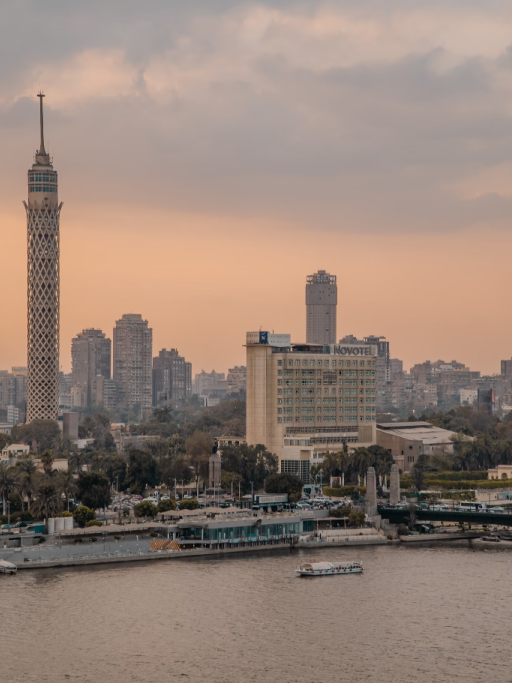Working Areas
Service in Low-Income Areas
Waste-water Collection & Treatment
Other
Organizations Involved
Perusahaan Daerah Air Minum (Regional Water Utility Company) Tirtanadi Medan — Lead Mentee
Indah Water Konsortium Sdn Bhd — Lead Mentor
Asian Development Bank (ADB)
—
Funder
USAID (Eco-Asia)
—
Broker
SDGs
6.1Universal and equitable access to safe and affordable drinking water for all
Project description
The aim of the WOP is to have a better community understanding of benefits of sewerage services
Project main objectives
1) Better community understanding of benefits of sewerage services
2) Raised capacity of the PDAM Tirtanadi and Medan City Government staff to manage zoning priorities,
government and private partnerships and scheme development
3) Greater awareness and readiness of the public to connect to the sewerage system and pay fees
4) Improved coordination with Medan City Government on enabling policies
5) More sewerage customers connected – 300 + by July 2009
2) Raised capacity of the PDAM Tirtanadi and Medan City Government staff to manage zoning priorities,
government and private partnerships and scheme development
3) Greater awareness and readiness of the public to connect to the sewerage system and pay fees
4) Improved coordination with Medan City Government on enabling policies
5) More sewerage customers connected – 300 + by July 2009
Most significant results
Partly as a result of the awareness campaign and the results achieved, local and central government is now more engaged in supporting sewerage development. The City Government of Medan is providing increased funds to connect more households to the sewerage system.The Ministry of Public Works has promised more funds to increase coverage for Medan’s sewerage system.
PDAM Tirtanadi is now reviewing local guidelines and policy on the development of its sewerage system. It is following the IWK example of establishing standards and controls for local sewer laying contractors to ensure proper and satisfactory connections for the communities. PDAM Tirtanadi is also assessing what can be done to monitor contractors via regulation.
Benefits for the partners
1) PDAM Tirtanadi Medan:
-Conducting educational and site tours such as those at PDAM Tirtanadi’s Cemara STP to increase awareness among the public and government agencies on the benefits of connecting to sewerage services;
- Adopting best practices for planning and development of sewerage services and infrastructure;
- Adopting best practices for development control policies and guidelines to ensure that quality sewerage assets were built for the public;
- Using the media to attract government and public support for sewerage development activities.
2) Indah Water Konsortium
-Learning how to use and adapt the Toolkit in a new operating environment;
-Enriching the skills and knowledge of its staff and motivating them in finding appropriate solutions;
-Expanding IWK’s capabilities into the regional sewerage sector;
-Enhancing its corporate social responsibility programme by contributing to developing countries outside Malaysia.
3) USAID (Eco-Asia):
Field-testing the Toolkit. The Medan experience was used as to develop and improve the Toolkit for application elsewhere.
PDAM Tirtanadi is now reviewing local guidelines and policy on the development of its sewerage system. It is following the IWK example of establishing standards and controls for local sewer laying contractors to ensure proper and satisfactory connections for the communities. PDAM Tirtanadi is also assessing what can be done to monitor contractors via regulation.
Benefits for the partners
1) PDAM Tirtanadi Medan:
-Conducting educational and site tours such as those at PDAM Tirtanadi’s Cemara STP to increase awareness among the public and government agencies on the benefits of connecting to sewerage services;
- Adopting best practices for planning and development of sewerage services and infrastructure;
- Adopting best practices for development control policies and guidelines to ensure that quality sewerage assets were built for the public;
- Using the media to attract government and public support for sewerage development activities.
2) Indah Water Konsortium
-Learning how to use and adapt the Toolkit in a new operating environment;
-Enriching the skills and knowledge of its staff and motivating them in finding appropriate solutions;
-Expanding IWK’s capabilities into the regional sewerage sector;
-Enhancing its corporate social responsibility programme by contributing to developing countries outside Malaysia.
3) USAID (Eco-Asia):
Field-testing the Toolkit. The Medan experience was used as to develop and improve the Toolkit for application elsewhere.
